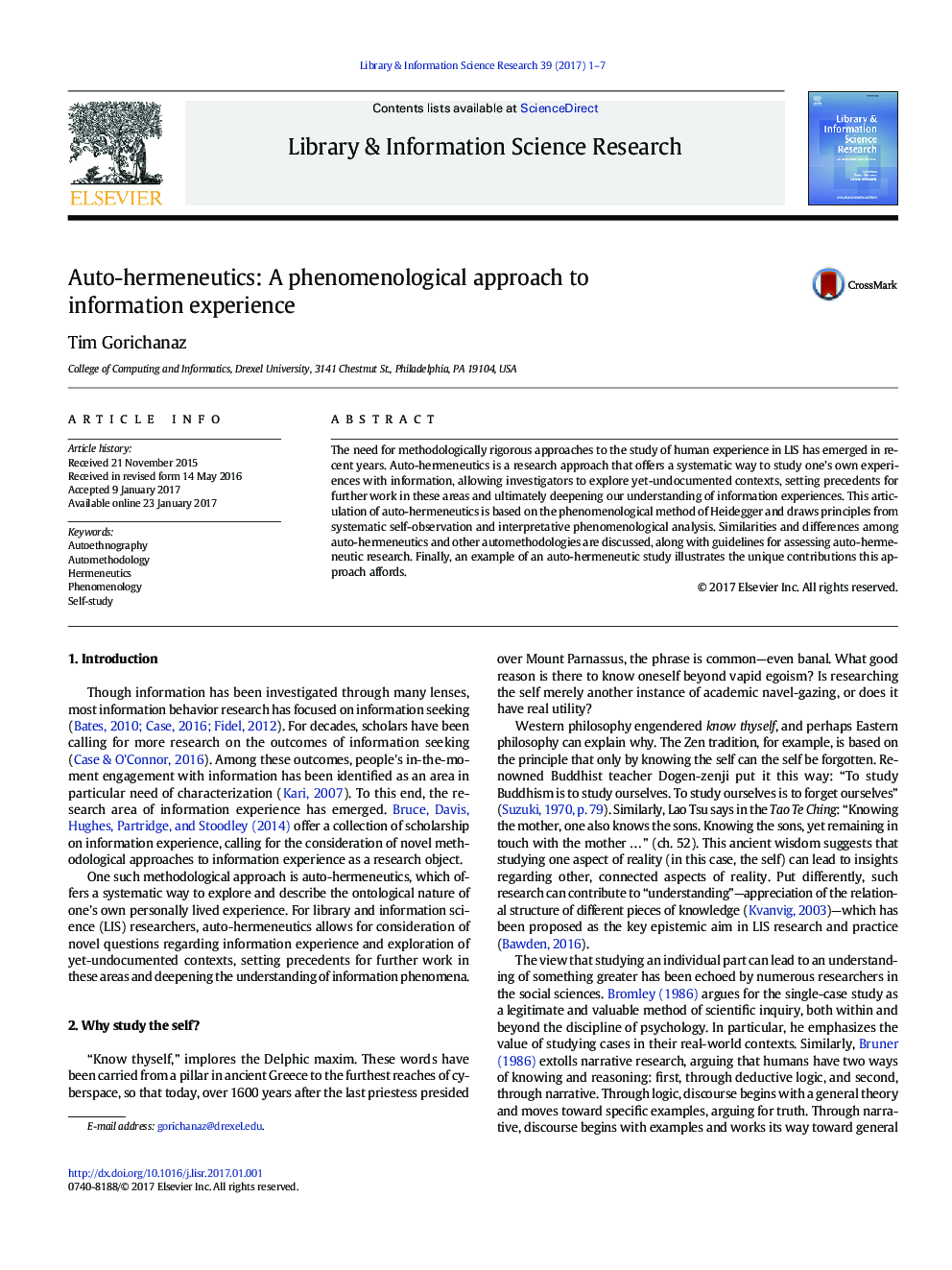| Article ID | Journal | Published Year | Pages | File Type |
|---|---|---|---|---|
| 5123916 | Library & Information Science Research | 2017 | 7 Pages |
â¢A need has emerged in LIS for a methodologically rigorous and flexible approach to studying information experience.â¢Auto-hermeneutics is a research approach suitable for exploring one's own experiences with information.â¢Auto-hermeneutics can contribute to the ontological characterization of information phenomena.â¢It draws methodological principles from systematic self-observation and interpretative phenomenological analysis.â¢It is differentiated from other auto-methodologies used in LIS, including auto-ethnography and self-study.
The need for methodologically rigorous approaches to the study of human experience in LIS has emerged in recent years. Auto-hermeneutics is a research approach that offers a systematic way to study one's own experiences with information, allowing investigators to explore yet-undocumented contexts, setting precedents for further work in these areas and ultimately deepening our understanding of information experiences. This articulation of auto-hermeneutics is based on the phenomenological method of Heidegger and draws principles from systematic self-observation and interpretative phenomenological analysis. Similarities and differences among auto-hermeneutics and other automethodologies are discussed, along with guidelines for assessing auto-hermeneutic research. Finally, an example of an auto-hermeneutic study illustrates the unique contributions this approach affords.
